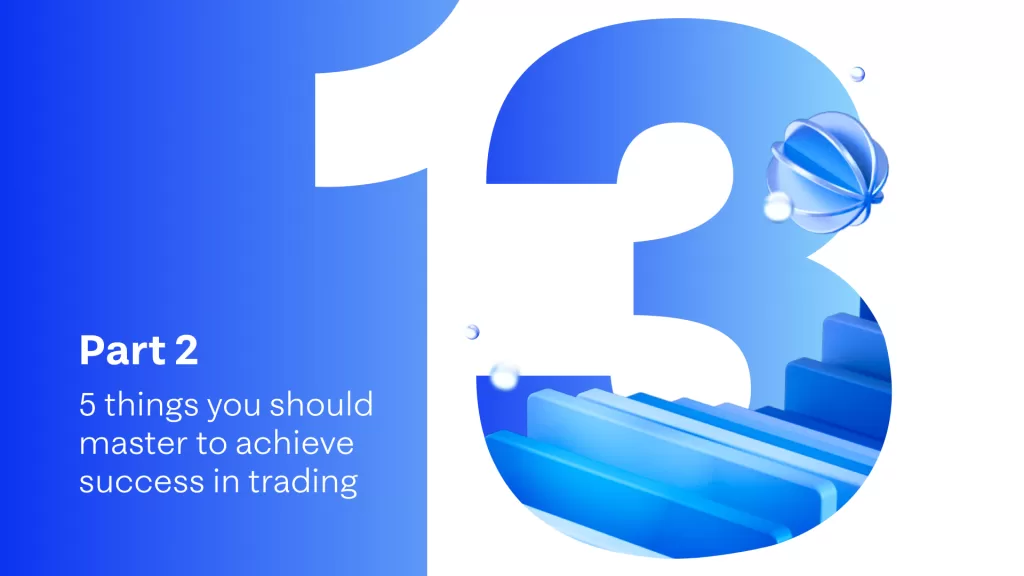Forex trading has become an increasingly popular source of supplementary income. For the estimated 100 000 South Africans who trade, forex presents an opportunity for financial security, additional income, and a diversified investment portfolio. Global online forex broker Octa has compiled a shortlist of five key skills that every trader should develop to improve their trading success and step up their results. According to Octa’s global experts, these skills will enhance even the more experienced trader’s investment strategies:
Skill #1 – Acquiring Knowledge
A vast majority of traders that have achieved consistent profits cite continuous learning as one of the cornerstones of their success. These traders expand their knowledge by reading trading content online, signing up for dedicated educational courses, and studying the strategies of professional traders to keep up with the latest best practices.
Inexperienced traders benefit greatly from developing a fluent knowledge of basic financial concepts. For example, every trader should learn how to calculate their potential profits and losses for a given order based on the lot price and spread amount to effectively use risk management tools. Additionally, traders should know how support and resistance levels work, and what the patterns are to effectively identify potential entry points.
Understanding that advanced techniques are unlocked step by step as they master ground-level concepts should motivate traders to prioritise the pursuit of knowledge throughout their trading journey.
Skill #2 – Emotional Intelligence

You can’t control the market environment, but you can control your emotions and your response to changing market conditions. Successful traders know the importance of mastering their emotions.
Professional traders often compare their ideal mental state during a trading session to the workings of a robot assembly line. Every movement is precise, purposeful and measured. Each sequence of actions leads to a measured, predictable result. Impulsive or chaotic moves have no place in their trades.
While the market may behave unpredictably at times, a smart trader displays high levels of emotional intelligence and self-discipline to achieve consistently positive results.
Skill #3 – Risk Management
Understanding risk is essential to successful trading. Potential profits in trading have a reverse relation to risk: the more profit you seek, the greater your potential exposure to risk.
Top traders develop a range of risk management techniques based on their risk tolerance – the amount of loss they are prepared to handle. Every trader’s risk tolerance depends on their starting capital and long-term financial goals. These in turn define the choice of trading instruments.
To illustrate: if your goal is to immediately develop a supplementary income source, you may consider forex trading, which accommodates modest starting capital while providing regular income for day-to-day purposes.
Skill #4 – Mastery of Time
Inexperienced traders often spend excessive amounts of time comparing various expert predictions in order to validate their trading decisions. However, the quality of trading advice varies wildly, leaving an uphill battle for traders seeking trustworthy, actionable advice.
To enable traders to optimise their time management, Octa has embedded a dedicated feed with curated expert content into its trading platform. The toolkit, called Space, is available to all Octa Trader clients and offers a customisable stream of actionable trading recommendations that can be transferred to traders’ charts in a few clicks.
This saves traders significant time and allows them to enhance their trading outcomes with the latest expert insights.
Skill #5 – Teachability
In trading – as in life – mistakes are inevitable. However, the ability to remain teachable and learn from the mistakes of others helps traders avoid the most notorious pitfalls. This also keeps traders from having to learn every lesson the hard way.
Learning from a good broker with extensive educational capabilities allows traders to study typical cases and reinforce their newly-acquired knowledge. Brokers that offer a demo account also allows traders to test their new knowledge and gain first-hand experience with new trading strategies before they invest.





























